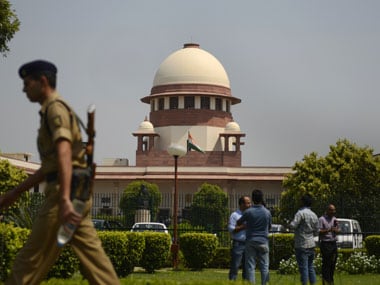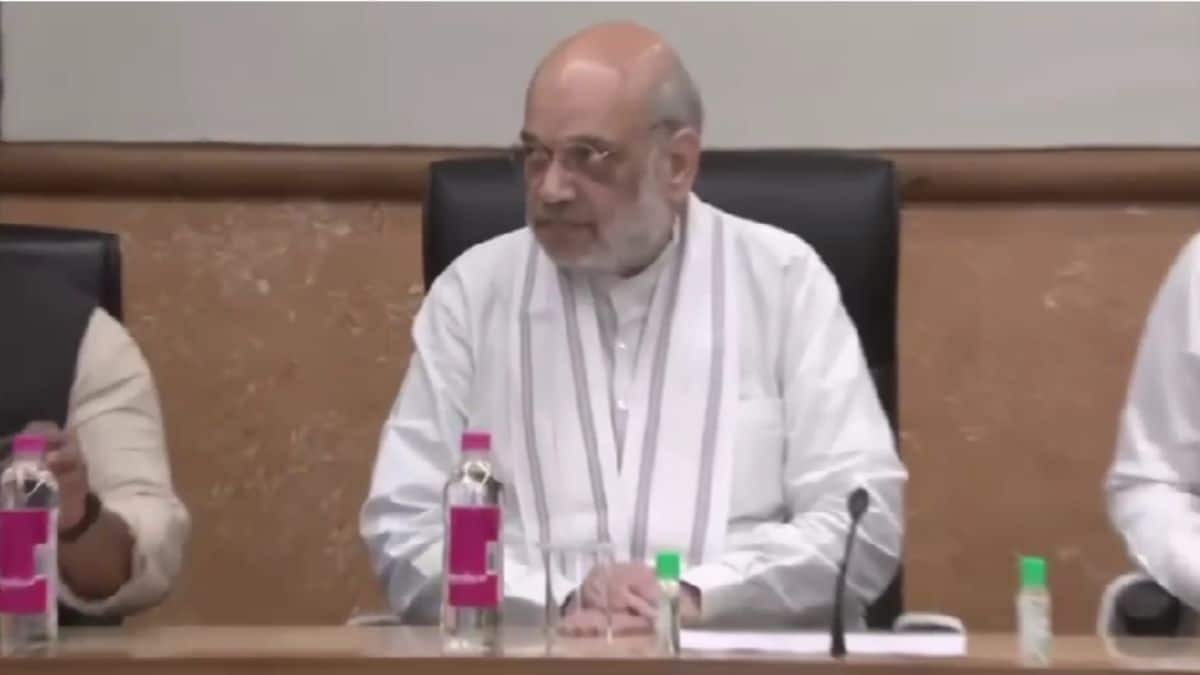The Supreme Court is likely to pronounce on Thursday its judgment on the vexatious issue whether the Right to Privacy can be held as a Fundamental Right under the Constitution. A nine-judge constitution bench headed by Chief Justice JS Khehar had on 2 August reserved its verdict after hearing marathon arguments for six days over a period of three weeks, during which submissions were advanced in favour and against the inclusion of the Right to Privacy as a Fundamental Right. As the contentious debate progressed in the apex court, during six-day marathon hearings over a course of three weeks, Firstpost put together the key underlying arguments in both for and against the case and what the Supreme Court has said so far. [caption id=“attachment_3907001” align=“alignleft” width=“380”]  File image of the Supreme Court. AFP[/caption] Arguments in favour of Right to Privacy as Fundamental Right The underlying argument of those challenging Aadhaar as violative of the Right to Privacy is that it is pre-existing natural right which is inherent in the Constitution, even though it is not explicitly mentioned. Senior counsel Gopal Subramanium who is leading the argument on behalf of the petitioners said, “The Right to Privacy is recognised as a Fundamental Right under Article 21 (Right to Life and Personal Liberty) of the Constitution. The concept of privacy is embedded in liberty as well as a person’s honour.” Another senior advocate, Sajan Poovaya argued that the State has an obligation to protect citizens digital identity as much as physical identity. He quoted existing laws, in framing which the government had conceded that Right to Privacy is paramount. Poovaya said that the government can’t take a contradictory stand on privacy, when it has accepted it as the basis for defining what information would be exempted under Right to Information Act, according to The Times of India. The government, then, clearly recognises “ unwarranted invasion of the privacy of the individual” as problematic and requires the appellate authority to be satisfied that “the larger public interest justifies the disclosure of such information.” The third argument being made in the case relates to India’s obligation to honour international treaties that have clauses relating to protecting a citizen’s privacy. India is a signatory to the Universal Declaration of Human Rights which also talked of Right to Privacy of individuals. “Once the country is signatory to this as well as other international instruments and treaties recognising right to privacy, it is the duty of the government of that country to incorporate it into the domestic laws,” advocate Anand Grover was quoted in The Times of India report. Arguments against elevating Right to Privacy as Fundamental Right Senior advocate CA Sundaram, representing the Maharashtra government, said the apex court has been entrusted with the power to merely interpret the Constitution; it cannot introduce Right to Privacy as a Fundamental Right under the Constitution. “Parliament and only Parliament can do it,” he said . Sundaram said some aspects of privacy can be traced to Article 21, but it cannot be held as a Fundamental Right. He argued that the Right to Privacy was “statutorily” protected and there was no need to further elevate it as a Fundamental Right. In case of violation, Article 300 of the Constitution dealing with common law rights will suffice, the government counsel said. Contradicting the petitioner’s argument that Right to Privacy is enshrined in Constitution under Article 21, Sundaram said that the aforementioned article refers to the term “personal liberty” and not “liberty or civil liberty” and the term personal liberty means physical liberty only. Additional Solicitor General Tushar Mehta, representing the Unique Identification Authority of India (UIDAI) attached his argument to the ambiguity of the whole concept as such. He claimed that something as non-definitive as privacy cannot be conferred the status of a Fundamental Right, which is protected by law under the Constitution. “Privacy is inherently a vague and subjective concept which is incapable of any precise definition and its contours cannot be conferred with a status of a Fundamental Right,” he said . He claimed that statutes under various laws — including the Income Tax Act, the Right to Information Act and the Indian Telegraph Act — already protect tenets of privacy as much as it is required, hence there was no need to make it a constitutional right. The Supreme Court’s observation so far On 12 July, the Supreme Court agreed to hear, on an urgent basis, issues arising out of the Aadhaar Act and set up a five-judge bench to decide whether Right to Privacy can be a Fundamental Right, according to Livemint. The apex court on 18 July, expanded the bench to a nine-judge Constitution bench to decide on the Right to Privacy aspect, and the debate on Aadhaar will then be referred back to a smaller bench, India Today reported. During the course of the hearing, the apex court made several observations and several crucial points. On 20 July, the apex court expressed “strong reservations about declaring absolute right to privacy a fundamental right,” The Times of India reported. “Right to privacy cannot be so absolute and overarching that the state is prohibited from legislating restrictions on it… If we declare Right to Privacy as a fundamental right, will it permit the government to enact a law prohibiting social media from making personal details of its users public? So, what will be the obligations of a state in such a situation?” the court said. On 2 August the bench had voiced concern over the possible misuse of personal information in the public domain and said that protection of the concept of privacy in the all-pervading technological era was a “losing battle”. The high-profile arguments also saw the apex court asking searching questions about the contours of Right to Privacy in the digital age when personal information was randomly shared with all types of government and private entities. Justice Chandrachud, during the hearing , referred to the major expansion in big data and artificial intelligence. He asked that when people were readily giving access to personal data to private players in the digital era was there a qualitative difference between State and private companies in demanding data. “When 99% of the citizens are ‘unconcerned’ about sharing personal data with private players like Apple, how is it qualitatively different if the State has the same information?” according to The Wire. The court also took cognisance of the petitioners’ argument that India was a signatory of Universal Declaration of Human Rights treaty. “Even if we accept it that the Constituent Assembly dealt with it (privacy issue) and decided against including it as a Fundamental Right, then how you will deal with the fact that India is a signatory to the Universal Declaration of Human Rights which recognises it,” the court asked. The apex court also ruled out that the debate on right to privacy can be moulded on a case-to-case basis. The bench said that there has to be an “overarching” or all-embracing guideline to ensure that the private information of individuals, put in public domain, was used only for an intended purpose.
Firstpost put together the key underlying arguments in both for and against the case on right to privacy and what the Supreme Court has said so far.
Advertisement
End of Article


)

)
)
)
)
)
)
)
)



